 Perhaps what’s most memorable about KYYX-FM was the difference between how the station started and how it finished its 7-year run in Seattle radio. Two different logos but the same station, which took two different paths in the late 1970s and early ’80s. Not unusual in radio, at all. But KYYX -– which started in a usual and familiar way -– was hardly a conventional sound when it left the air waves.
Perhaps what’s most memorable about KYYX-FM was the difference between how the station started and how it finished its 7-year run in Seattle radio. Two different logos but the same station, which took two different paths in the late 1970s and early ’80s. Not unusual in radio, at all. But KYYX -– which started in a usual and familiar way -– was hardly a conventional sound when it left the air waves.
 By the mid-1970s, Pat O’Day had finished a highly successful 15 years at KJR. His Concerts West enterprise had been a big money-maker. He had his eye on radio ownership and acquired the old KXA-AM license and added a companion FM, in a move to establish a competitive base in the burgeoning FM market.
By the mid-1970s, Pat O’Day had finished a highly successful 15 years at KJR. His Concerts West enterprise had been a big money-maker. He had his eye on radio ownership and acquired the old KXA-AM license and added a companion FM, in a move to establish a competitive base in the burgeoning FM market.
In 1977, O’Day changed KXA’s longtime classic music format to “Old Gold 77” with several familiar Seattle radio jocks -– guys like Jerry Kay, Burl Barer, Moose Moran and the Ryan & Ryan duo (Bobby and Gary) playing Top-40 oldies. That format didn’t last long, however, with O’Day flipping it a couple of times so more emphasis could go to the more highly prized and greater revenue potential of KYYX. Robin Mitchell (looking for new life after the FCC forced the death of WIFE radio) was brought back to Seattle to lead KYYX’s programing direction. The promotion-minded O’Day even flew Lan Roberts back from Taiwan for short-term cameo on-air shots to boost the station’s initial launch.
Roberts is the first voice you’ll hear on this KYYX combined ’77-’78 composite audio track, which also includes Lee Emperor Smith, Burl Barer and Robin Mitchell doing a couple of drop-in promos.
(Audio Running Time 8:03)

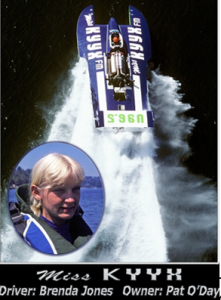 O’Day also used KYYX to capitalize on Seattle’s (and his own) long love affair with unlimited hydroplane racing. He acquired and competed Miss KYYX in the annual August Seafair races in the early ’80s, piloted by the first and only female driver (Brenda Jones). He also used his KYYX on-air staff to call/broadcast the races (just as he’d done at KJR).
O’Day also used KYYX to capitalize on Seattle’s (and his own) long love affair with unlimited hydroplane racing. He acquired and competed Miss KYYX in the annual August Seafair races in the early ’80s, piloted by the first and only female driver (Brenda Jones). He also used his KYYX on-air staff to call/broadcast the races (just as he’d done at KJR).
Audio Chet Rogers anchors KYYX ’82 race coverage (Running time :31)
KYYX was in reality a top-40 station on the FM band, not much different than the KJR sound it was modeled after. But by 1982, Seattle’s FM dial was crowded with every blend of adult and contemporary hit music format imaginable. KYYX’s listener numbers were lagging, prompting O’Day to flip the format to new wave rock, which was starting to take hold in places like San Francisco, LA and Vancouver. And with that, the KYYX brand took on a whole new meaning.

The KYYX “Rock of the ’80s” wave sound had a distinctively younger on-air staff that made a noticeable splash. But it was mostly the music — a more intense blend of mod, disco and electric — much like mid-’70s punk rock — that excited a whole different audience.
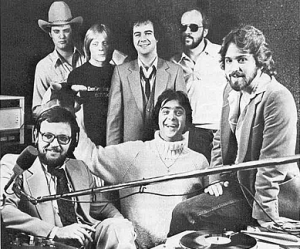
However, in less than 17 months new wave KYYX’s run was over. In December 1983, after a seven-year ownership, O’Day sold the station to Madison Park Broadcasting, which kept the new wave format until March 25, 1984. It then went to a soft rock format.
The bottom line: The facts in the KYYX demise did not show that the station’s wave format shift in late 1982/early ‘83 was seen as a financial game changer. Pat O’Day saw the inevitable coming as early as February-March of ’83 (or probably earlier) when he sought chapter 11 bankruptcy (which was approved in June ’83). So, in fact, the KYYX wave adventure was dead almost before it started. Thus the reality of broadcasting: Apparent youthful audience intensity doesn’t mean overall financial success. But you couldn’t tell that to the throngs of wave music revelers who were sticking pins in Pat O’Day dolls after the station’s format trashing in March of ’84.
This next composite KYYX aircheck ends with the station’s final on-air moments, after a montage (Stephen Rabow/Van Johnson) of the new wave sound that ignited an intense and loyal following.
(Audio Running Time 4:14)
A classic KYYX post script was the final on-air staff’s production and sale of — the Tape. “Local Heroes and New Faces” was a highly prized 60-minute audio tape which included 18 selections by what its producers called some of the best bands in the Seattle area. It was an “interesting combination of rising stars, mediocre bar bands and what-the-hell studio efforts,” according to Popular Music writer Sean P. Means in 1984. The tape sold for a whopping $1.96, which made it an “underground treasure trove,” according to a number of sources.

A fella named Ivan Smith uploaded the full tape to YouTube.

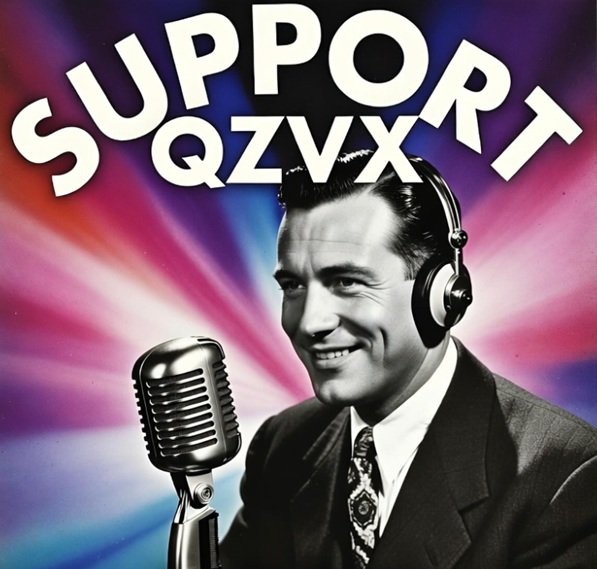
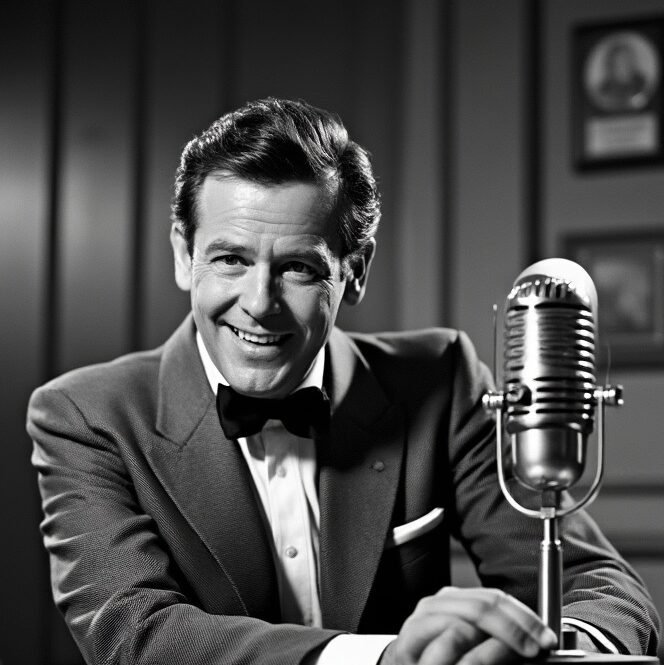

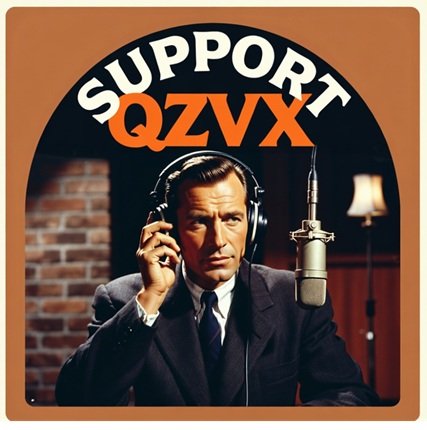
Wow, kyyx “the jet” was the best thing in those days, new wave fresh & fun, a happy time. I listened until the bitter end. The first song in the new format was Def Lepard,
top fourty swill. Damn near fourty years later it still bugs me.